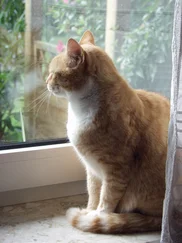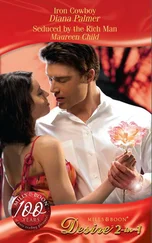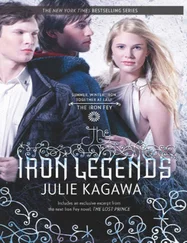This morning, bringing him coffee, I found him urinating into the drain, which he did without any appearance of shame.
'Do you want a job of work?' I said. 'There are plenty of jobs I can give you.'
He said nothing, but drank the coffee, holding the mug in both hands.
'You are wasting your life,' I said. 'You are not a child any more. How can you live like this? How can you lie around and do nothing all day? I don't understand it. '
It is true: I do not understand it. Something in me revolts at the lassitude, the letting go, the welcoming of dissolution. He did something that shocked me. With a straight look, the first direct look he has given me, he spat a gob of spit, thick, yellow, streaked with brown from the coffee, on to the concrete beside my foot. Then he thrust the mug at me and sauntered off.
The thing itself, I thought, shaken: the thing itself brought out between us. Spat not upon me but before me where I could see it, inspect it, think about it. His word, his kind of word, from his own mouth, warm at the instant when it left him. A word, undeniable, from a language before language. First the look and then the spitting. What kind of look? A look without respect, from a man to a woman old enough to be his mother. Here: take your coffee.
He did not sleep in the alley last night. The boxes are gone too. But, poking around, I came upon the Air Canada bag in the woodshed, and a place that he must have scratched for himself amid the jumble of lumber and faggots. So I know he means to come back.
Six pages already, and all about a man you have never met and never will. Why do I write about him? Because he is and is not. Because in the look he gives me I see myself in a way that can be written. Otherwise what would this writing be but a kind of moaning, now high, now low? When I write about him I write about myself. When 1 write about his dog I write about myself; when I write about the house I write about myself. Man, house, dog: no matter what the word, through it I stretch out a hand to you. In another world I would not need words. I would appear on your doorstep. 'I have come for a visit,' I would say, and that would be the end of words: I would embrace you and be embraced. But in this world, in this time, I must reach out to you in words. So day by day I render myself into words and pack the words into the page like sweets: like sweets for my daughter, for her birthday, for the day of her birth. Words out of my body, drops of myself, for her to unpack in her own time, to take in, to suck, to absorb. As they say on the bottle: old-fashioned drops, drops fashioned by the old, fashioned and packed with love, the love we have no alternative but to feel toward those to whom we give ourselves to devour or discard.
Though it rained steadily all afternoon, it was not till dark that I heard the creak of the gate and, a minute later, the click of the dog's claws on the veranda.
I was watching television. One of the tribe of Ministers and Onderministers was making an announcement to the nation. 1 was standing, as I always do when they speak, as a way of keeping what I can of my self-respect (who would choose to face a firing-squad sitting down?). Ons buig nie voor dreigemente nie, he was saying:' we do not bow to threats: one of those speeches.
The curtains behind me were open. At a certain moment I became aware of him, the man whose name I do not know, watching over my shoulder through the glass. So I turned up the sound, enough for, if not the words, then the cadences, to reach him, the slow, truculent Afrikaans rhythms with their deadening closes, like a hammer beating a post into the ground. Together, blow after blow, we listened. The disgrace of the life one lives under them: to open a newspaper, to switch on the television, like kneeling and being urinated on. Under them: under their meaty bellies, their full bladders. 'Your days are numbered,' I used to whisper once upon a time, to them who will now outlast me.
I was on my way out to the shops, in the act of opening the garage door, when I had a sudden attack. An attack: it was just that: the pain hurling itself upon me like a dog, sinking its teeth into my back. I cried out, unable to stir. Then he, this man, appeared from somewhere and helped me into the house.
I lay down on the sofa, on my left side, In the only comfortable posture left to me. He waited. 'Sit down,' I said. He sat. The pain began to subside. 'I have cancer,' I said, it has made its way into the bone. That is what hurts.'
I was not at all sure he understood.
A long silence. Then: 'This is a big house,' he said. 'You could turn it into a boarding-house.'
I made a tired gesture.
'You could let rooms to students,' he went on relentlessly.
I yawned, and, feeling my teeth sag, covered my mouth. Once upon a time I would have blushed. But no longer.
'I have a woman who helps with the housework,' I said. 'She is away till the end of the month, visiting her people. Do you have people?'
A curious expression: to have people. Do I have people? Are you my people? I think not. Perhaps only Florence qualifies to have people.
He made no reply. There is an air of childlessness about him. Of having no children in the world but also of having no childhood in his past. His face all bone and weathered-skin. As one cannot imagine a snake's head that does not look old, so one cannot see behind his face the face of a child. Green eyes, animal eyes: can one picture an infant with eyes like that?
'My husband and I parted a long time ago, ' I said. 'He is dead now. I have a daughter in America. She left in 1976 and hasn't come back. She is married to an American. They have two children of their own.'
A daughter. Flesh of my flesh. You.
He took out a packet of cigarettes. 'Don't smoke in the house, please,' I said.
'What is your disability?' I said. 'You say you get a disability pension.'
He held out his right hand. Thumb and forefinger stood out; the other three fingers curled into the palm. 'I can't move them,' he said.
We gazed at his hand, at the three crooked fingers with their dirty nails. Not what I would call a work-calloused hand.
'Was it an accident?'
He nodded; the kind of nod that committed him to nothing.
'I'll pay you to cut the lawn,' I said.
For an hour, using the hedge clippers, he hacked listlessly at the grass, knee-high by now in places. In the end he had cleared a patch a few yards square. Then he quit. 'It's not my kind of work,' he said. I paid him for the hour. As he left he bumped against the cat-tray, spilling litter all over the veranda.
All in all, more trouble than he is worth. But I did not choose him. He chose me. Or perhaps he merely chose the one house without: a dog. A house of cats.
The cats are unsettled by these newcomers. When they show their noses outside the dog makes playful dashes at them, so they skulk indoors, peevish. Today they would not eat. Thinking they spurned the food because it had been in the refrigerator, I stirred a little hot water into the smelly mess (what is it? seal-flesh? whale-flesh?). Still, they disdained it, circling the dish, flicking the tips of their tails. 'Eat!' I said, pushing the dish at them. The big one lifted a finicky paw to avoid being touched, At which I lost control. 'Go to hell, then!' I screamed, and flung the fork wildly in their direction – 'I am sick to death of feeding you!' In my voice there was a new, mad edge; and, hearing it, I exulted. Enough of being nice to people, enough of being nice to cats! 'Go to hell!' I screamed again, at the top of my voice. Their claws scrabbled on the linoleum as they fled.
Who cares? When I am in a mood like this I am capable of putting a hand on the bread-board and chopping it off without a second thought. What do I care for this body that has betrayed me? I look at my hand and see only a tool, a hook, a thing for gripping other things. And these legs, these clumsy, ugly stilts: why should I have to carry them with me everywhere? Why should I take them to bed with me night after night and pack them in under the sheets, and pack the arms in too, higher up near the face, and lie there sleepless amid the clutter? The abdomen too, with its dead gurglings, and the heart beating, beating: why? What have they to do with me?
Читать дальше












